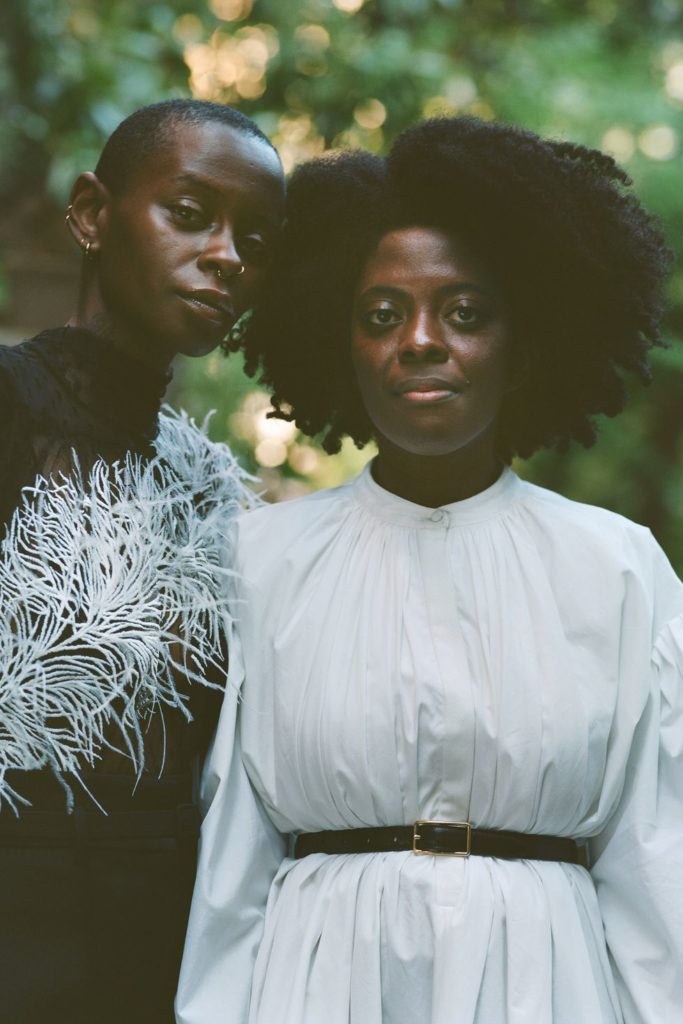
This month’s issue of Harper’s Bazaar features a conversation between Nigerian-American artist, Toyin Ojih Odutola, and Ghanaian-American writer, Yaa Gyasi.
Both Ojih Odutola and Gyasi emigrated from West Africa to the United States at a young age and grew up in Huntsville, Alabama.
Now in their early thirties, the two creators discuss the challenges and rewards of early career success and what it means to be the “first” at what they do.
Ojih Odutola’s latest exhibition, A Countervailing Theory, is the first solo commission featuring a Black woman at the Barbican Curve gallery in London. She takes the recognition with a grain of salt, reflecting:
I suppose my suspicions involve the obvious truths of being Black women, being West African women, coming into mainstream, public arenas. The strange novelty surrounding that and how it gets used and worn down. If you’re so caught up in my newness, my otherness, then you’re treating me and others like me in a way that’s not meant to last or further the conversation. So I push past that. With every show I create, I’m always thinking about who is coming after. I want them to have more options, to be different from what you’d expect. I think the idea of being a “first” is a responsibility too.
For Gyasi who is the first in her family to pursue a career in the arts, Ojih Odutola’s success marked a path for her and fueled her conviction to persevere in the face of doubt. She explains:
Being the first in my family to choose a nontraditional career path was already hard enough. I think there was already so much pressure around whether or not I would be successful at it that I just really dug my heels in and was like, “This is what I’m going to do. I don’t care what I need to do in order to do it, but I’m going to make it work because I have no other option.” That’s how I felt. And you were the first person I knew who wanted to be an artist and who was living that out so proudly. And because you were West African, I just felt like…to have a person I knew who was pursuing the arts and succeeding meant everything.
Click here to continue reading the full conversation.









COMMENTS -
Reader Interactions